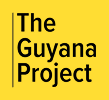Government Signals Support for Stronger Anti-Discrimination Laws Protecting LGBTQ+ Citizens

The Government of Guyana has pledged stronger anti-discrimination protections for all citizens, including LGBTQ+ individuals, while maintaining its stance against same-sex marriage. Planned reforms will focus on education, healthcare, and employment, ensuring equal access to services free from prejudice. Civil society organisations continue to advocate for changes to colonial-era laws and greater inclusion. With political parties engaging in national consultations, Guyana is moving toward a more inclusive framework that prioritises equality, accountability, and protection of citizens’ rights.
Salary Increases, Tax Reform, and Cost Reductions Promised in PPP/C Re-Election Plans

The PPP/C has announced its 2025 economic plan ahead of the September elections, pledging salary increases for public servants and improved benefits for pensioners, part-time workers, and vulnerable groups. The plan also proposes tax reforms to boost disposable income and cost-cutting measures such as toll removal, reduced electricity rates, and lower travel costs for hinterland residents. Support for mining, forestry, agriculture, and fishing industries is prioritized, aiming to create jobs, stimulate growth, and ensure prosperity for all Guyanese.
GCOPD Unveils Ambitious 2025–2030 Disability Manifesto to Advance Inclusion and Equality in Guyana

The Guyana Council of Organisations for Persons with Disabilities (GCOPD) has launched its 2025–2030 Disability Manifesto, outlining policies to strengthen inclusion, rights, and independence nationwide. It prioritizes education, employment, independent living, and accessibility. Key proposals include integrating children with disabilities into mainstream schools, enforcing a 5% public sector employment quota, offering grants and tax relief, and updating building codes to international standards. By addressing barriers and promoting empowerment, the manifesto provides a clear roadmap toward a more inclusive Guyana.
Specialist Healthcare Now Closer to Home in Region 6
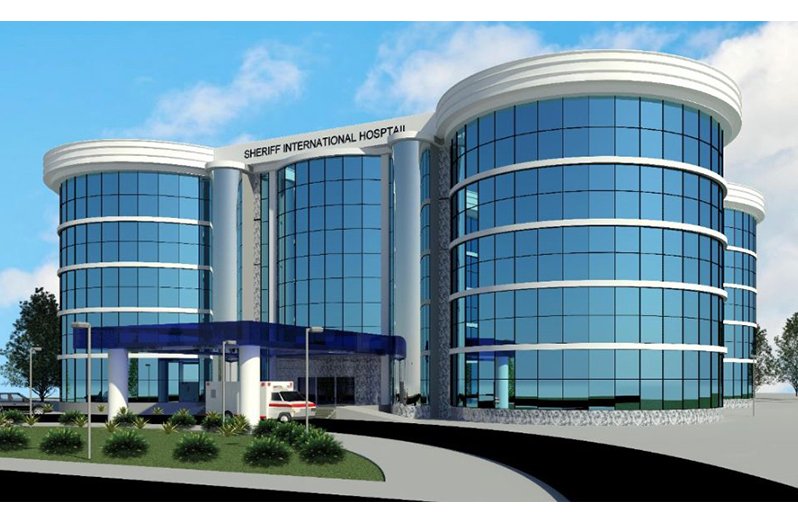
The ongoing upgrade of the New Amsterdam Hospital in Region 6 is transforming healthcare access for thousands of residents. With new specialist services, advanced equipment, and additional medical staff, patients no longer need to travel to Georgetown for critical care. The improvements are reducing wait times, lowering costs, and boosting health outcomes while strengthening regional healthcare systems. For families, receiving treatment closer to home provides comfort, convenience, and peace of mind—turning the promise of quality healthcare into a daily reality.
Reversal of Land Rent and D&I Charges Brings Relief to Region 5 Farmers
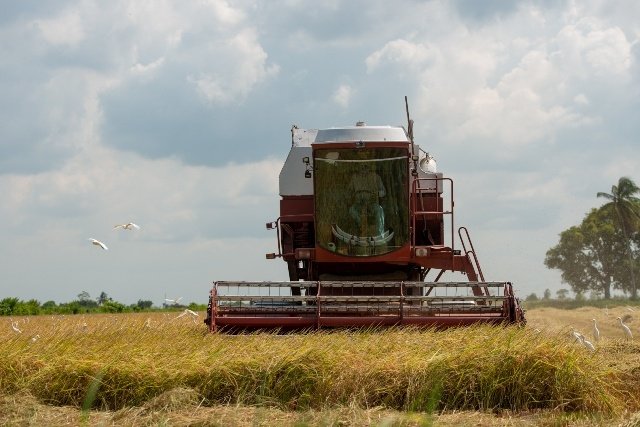
Farmers in Region 5 (Mahaica–Berbice) are experiencing greater financial relief following the removal of land rent and drainage and irrigation (D&I) charges. This policy has lowered operational costs, enabling farmers to reinvest in equipment, expand acreages, and improve productivity. With reliable drainage and irrigation services now provided at no cost, communities vulnerable to flooding benefit significantly. The initiative strengthens food security, boosts farmer confidence, and supports rural development, safeguarding livelihoods while reinforcing Guyana’s position as a regional food producer.
30% Electricity Tariff Reduction Brings Relief to Mahdia and Campbelltown Residents
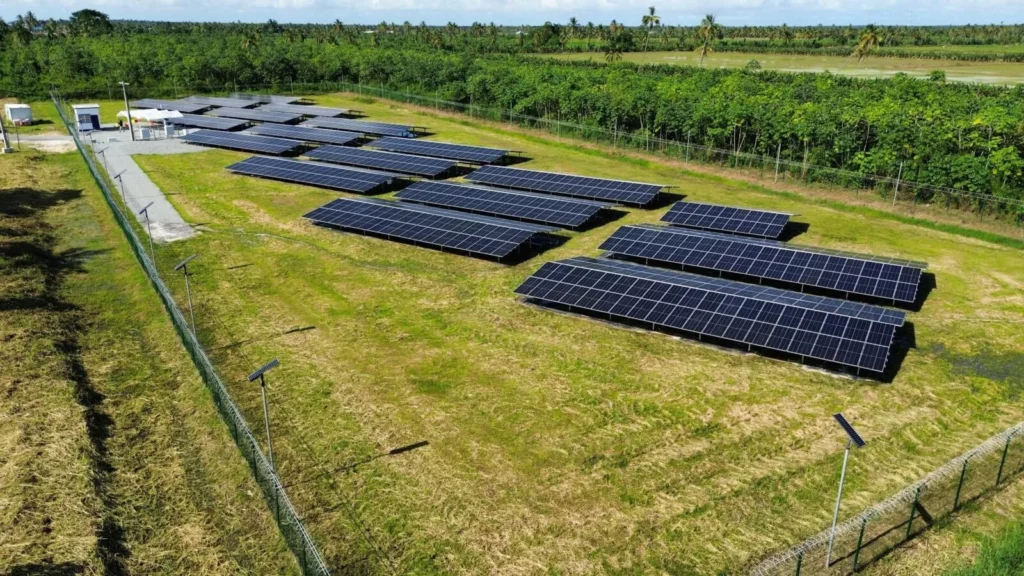
Residents of Mahdia and Campbelltown in Region Eight will benefit from a 30% electricity tariff reduction following the integration of a 0.65-megawatt solar farm into the local grid. The project, generating 935 megawatt-hours annually, includes battery storage for stability and reduces diesel use by over 309,000 litres yearly. This transition saves $80.5 million, cuts emissions by 672,000 kilograms, and aligns with Guyana’s Low Carbon Development Strategy 2030, advancing affordable, reliable, and sustainable energy for hinterland communities.
Courts Ready Finance Expands Access and Opportunity for Guyanese Businesses and Consumers

Unicomer Guyana has expanded its Courts Ready Finance program through a new Vendor Partnership Network, giving consumers access to affordable credit across a wider range of products and services. Beyond its own brands, the initiative now includes third-party vendors like National Hardware, Ramchand’s Auto Spares, and Farfan & Mendes Ltd. This expansion helps families and businesses purchase essentials more easily while creating growth opportunities for vendors. The program strengthens Guyana’s retail financing landscape, fostering inclusion, empowerment, and economic participation.
New 0% Interest Development Bank to Empower Guyana’s Small Businesses

Guyana is set to launch a development bank offering zero-interest loans and co-investment support for SMEs, reducing borrowing costs and collateral barriers. This initiative will especially benefit youth, women, and underserved regions while driving inclusive economic growth. Alongside the bank, a dedicated business facility will provide infrastructure, mentorship, and market access to help entrepreneurs thrive. By empowering small businesses—key drivers of jobs and community resilience—the government is positioning entrepreneurship at the heart of Guyana’s long-term economic prosperity.
Road Expansions Transform Mobility and Employment in Region 4
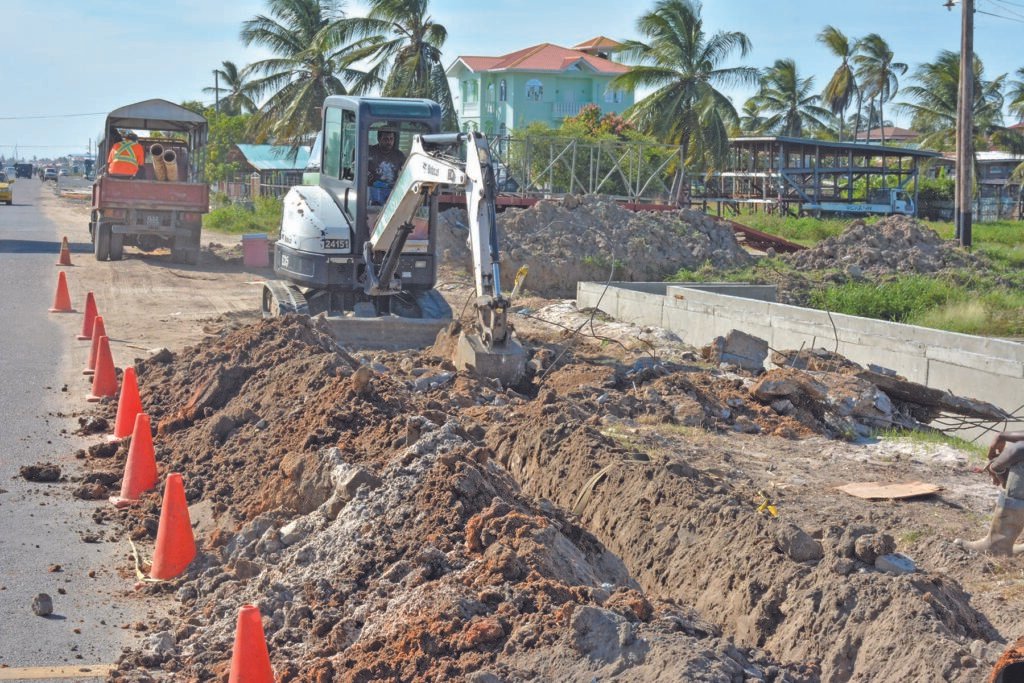
In Region 4, the expansion of the East Coast and East Bank road networks is reducing traffic congestion, cutting travel times, and boosting safety for thousands of commuters. The projects generate jobs across multiple sectors while equipping workers with valuable skills. Improved connectivity also strengthens commerce, logistics, and access to essential services. These developments are not only easing daily commutes but also laying the foundation for balanced urban growth, economic resilience, and greater opportunities across the Demerara–Mahaica region.
Modernised Markets Uplift Livelihoods in Region 3
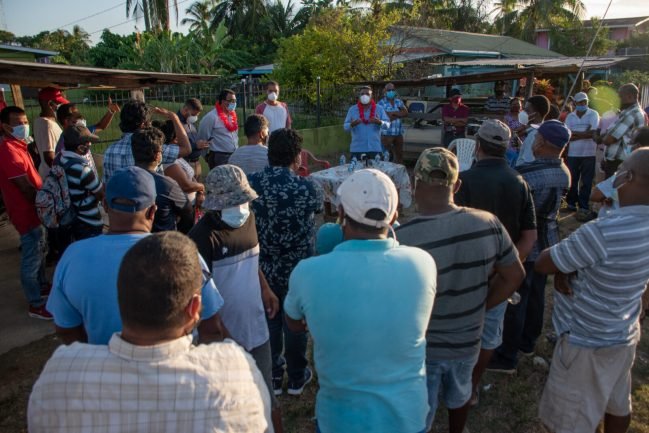
In Region 3, the rehabilitation of the Leonora and Parika markets has transformed conditions for over 800 vendors, creating safer, cleaner, and more functional commercial spaces. Once plagued by poor infrastructure, the markets now feature upgraded stalls, better sanitation, proper lighting, and improved layouts that attract more customers. These improvements not only enhance vendor livelihoods and shopper experiences but also reflect a broader commitment to strengthening small businesses, boosting community pride, and supporting the region’s economic resilience through modernized marketplaces.
